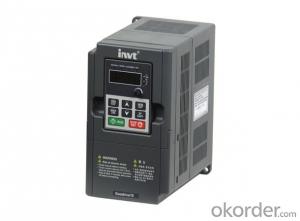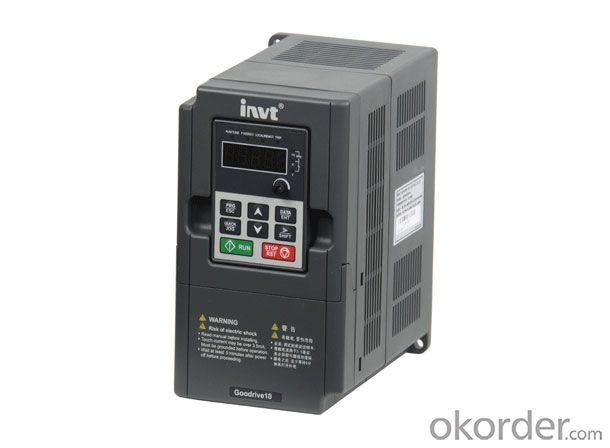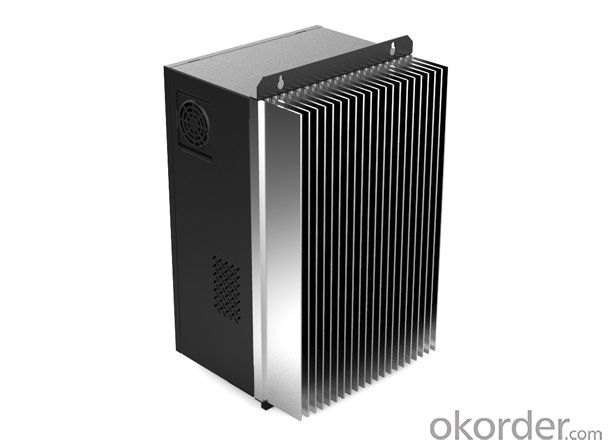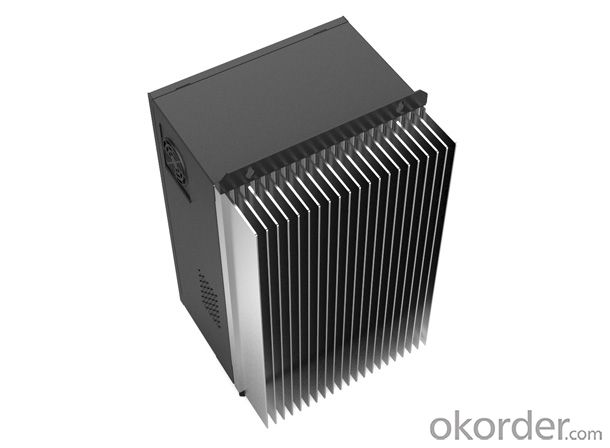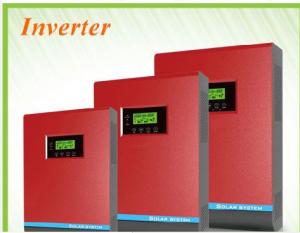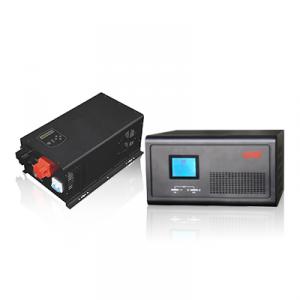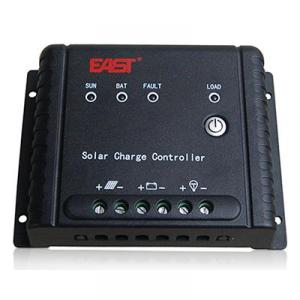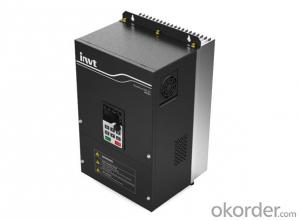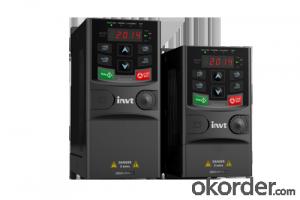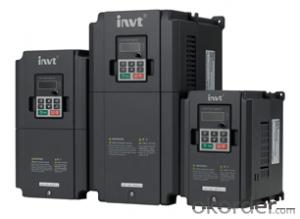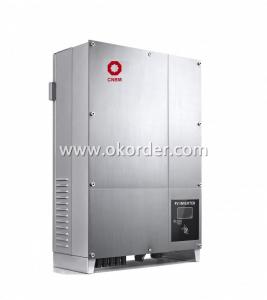Easy Solar Inverter - Goodrive10 Series Mini Inverter with Full Certification
- Loading Port:
- China main port
- Payment Terms:
- TT OR LC
- Min Order Qty:
- 100 pc
- Supply Capability:
- 10000 pc/month
OKorder Service Pledge
OKorder Financial Service
You Might Also Like
Goodrive10 Mini economic inverters are developed for general applications of small power and OEM market. It applies V/f control technology, making the functions of PID, multiple-speed step, DC braking, Modbus communication, as well as less installation space (15% smaller than the counterparts) available.
Goodrive10 Mini economic inverters are developed for general applications of small power and OEM market. It applies V/f control technology, making the functions of PID, multiple-speed step, DC braking, Modbus communication, as well as less installation space (15% smaller than the counterparts) available.
1AC 220V -15% ~ +10%, 0.2KW – 2.2KW
3AC 220V -15% ~ +10%, 0.2KW – 2.2KW
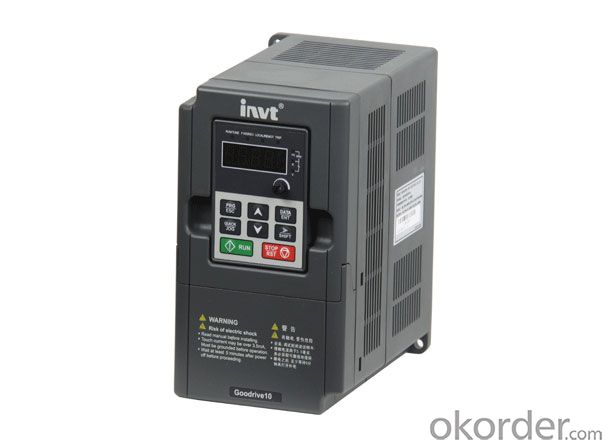
FAQ:
Q: Can you help us install the module if we cooperate with you?
A: We haven’t entered into installation sector, but we have the plan in near future.
Q: How do you pack your products?
A: We have rich experience on how to pack the panels to make sure the safety on shipment when it arrives at the destination.
Q: Can you do OEM for us?
A: Yes, we can.
Q: Can we visit your factory?
A: Surely, I will arrange the trip basing on your business schedule.
- Q: How does a solar inverter handle voltage and frequency variations caused by switching operations?
- A solar inverter handles voltage and frequency variations caused by switching operations through the use of advanced control algorithms and circuitry. It continuously monitors the input voltage and frequency from the solar panels and adjusts its own output voltage and frequency accordingly. This ensures that the power generated by the solar panels is efficiently converted into usable AC power that matches the grid requirements. The inverter's voltage and frequency control mechanisms help maintain a stable and consistent power supply, even in the presence of switching operations or fluctuations in the solar panel output.
- Q: How does a solar inverter convert DC power into AC power?
- A solar inverter converts DC power into AC power through a two-step process. Firstly, it uses a semiconductor component called a power switch to chop the DC input voltage into small pulses. Then, it employs a filter to smooth out these pulses, transforming them into a continuous waveform, which is the desired AC output power. This conversion enables the solar inverter to supply electricity that is compatible with standard AC appliances and can be used in homes, businesses, and the electrical grid.
- Q: Can a solar inverter be used in countries with different electrical standards?
- Yes, a solar inverter can be used in countries with different electrical standards by ensuring it is compatible with the specific electrical standards of the country. This may involve adjusting the voltage, frequency, and plug type to match the local requirements, or using voltage converters or adapters if necessary. It is important to consult with a professional or check the manufacturer's specifications to ensure proper compatibility and safe operation.
- Q: What is the role of reactive power control in a solar inverter?
- The role of reactive power control in a solar inverter is to manage and regulate the flow of reactive power in the electrical system. It helps to maintain a stable voltage level, improve power factor, and ensure efficient operation of the solar inverter. By controlling reactive power, the inverter can mitigate voltage fluctuations and provide optimal power quality, making the system more reliable and compliant with grid requirements.
- Q: What are the key features to consider when purchasing a solar inverter?
- When purchasing a solar inverter, some key features to consider are the capacity and efficiency of the inverter, its compatibility with your solar panel system, the type of inverter technology used (such as string or microinverters), the warranty and reliability of the brand, and any additional features or smart capabilities offered by the inverter.
- Q: How does a solar inverter impact the overall system reliability?
- A solar inverter plays a crucial role in ensuring the overall system reliability of a solar power system. It converts the direct current (DC) generated by solar panels into alternating current (AC) that is suitable for use in homes or businesses. By efficiently converting the energy and maintaining optimal voltage and frequency levels, the inverter ensures that the system operates reliably and consistently. It also provides various protective functions, such as monitoring and controlling the system's performance, detecting faults or abnormalities, and shutting down the system in case of emergencies. Therefore, a well-functioning solar inverter significantly impacts the overall system reliability by maximizing energy production, preventing damage, and ensuring smooth operation.
- Q: Can a solar inverter be used in regions with high altitude conditions?
- Yes, a solar inverter can be used in regions with high altitude conditions. However, it is important to consider certain factors such as temperature variations, reduced air density, and increased UV radiation at higher altitudes. In such cases, it may be necessary to choose a solar inverter specifically designed to handle these conditions and ensure proper functioning and efficiency of the system.
- Q: Can a solar inverter be used with different AC voltages?
- No, a solar inverter cannot be used with different AC voltages. It is designed to convert the DC power generated by solar panels into a specific AC voltage that is compatible with the electrical grid. Using it with a different AC voltage could lead to inefficient operation or even damage the inverter.
- Q: Can a solar inverter be used in a commercial or industrial setting?
- Yes, a solar inverter can be used in a commercial or industrial setting. In fact, they are commonly used in these settings to convert the direct current (DC) electricity generated by solar panels into alternating current (AC) electricity that is suitable for use in commercial or industrial buildings. Solar inverters are designed to handle larger electricity loads and are capable of efficiently powering various electrical equipment and machinery in such settings.
- Q: Can a solar inverter be used with different types of communication interfaces?
- Yes, a solar inverter can be used with different types of communication interfaces. Many modern solar inverters are designed to be compatible with various communication protocols such as Wi-Fi, Ethernet, RS485, and Zigbee. This allows for easy integration and monitoring of the inverter with different types of communication systems and devices.
Send your message to us
Easy Solar Inverter - Goodrive10 Series Mini Inverter with Full Certification
- Loading Port:
- China main port
- Payment Terms:
- TT OR LC
- Min Order Qty:
- 100 pc
- Supply Capability:
- 10000 pc/month
OKorder Service Pledge
OKorder Financial Service
Similar products
Hot products
Hot Searches
Related keywords
